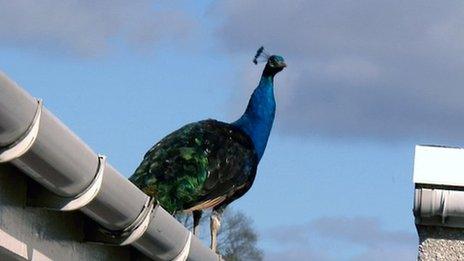Henfield Peacocks face uncertain future after complaints
- Published
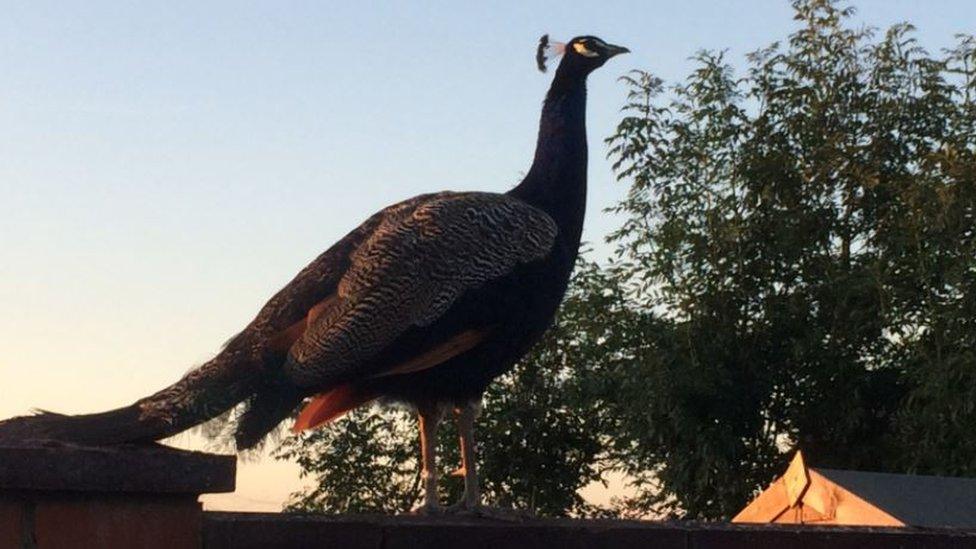
The birds have been roaming around Henfield in West Sussex for "a year or two"
A group of wild peacocks which roam around a West Sussex village are facing an uncertain future after complaints prompted police action.
Sussex Police said it was forced to act after the "patience of some long term residents had worn thin".
But Henfield resident Sue Bird said the animals were "important companions" and were "not doing any harm".
Now, a group of villagers are fighting to save the birds after the suggestion they might be "humanely dispatched".
Ms Bird said the "beautiful" creatures had been wandering around the village visiting people in their gardens "for a year or two".
She added: "Personally to me they are not doing any harm. During the lockdown they have been some people's companions."
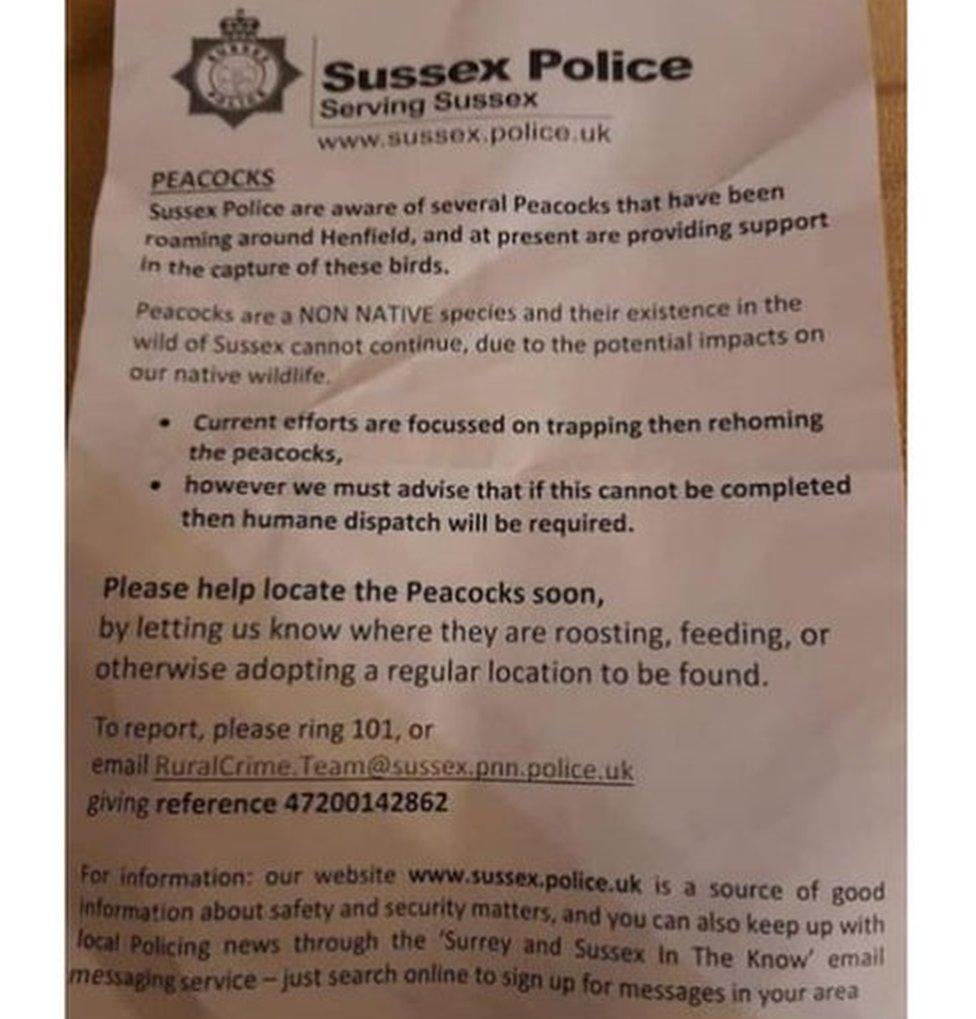
The initial notice from police suggested "humane dispatch" might be required
But a few weeks ago, a police notice asked villagers for their help in locating the birds.
It told them the non-native birds were posing a threat to local wildlife and their existence in the wild could not continue.
It said that if efforts to trap and re-home them were unsuccessful then "humane dispatch" would be required.
'Antisocial behaviour'
Concerned villagers set up a Facebook group to raise awareness of the birds' plight and it now has more than 550 followers.
However, speaking to BBC Sussex, Ch Insp Steve Bigland said the force's initial communication had not "articulated what our endgame is".
He was adamant: "We are not going to be humanely dispatching them."
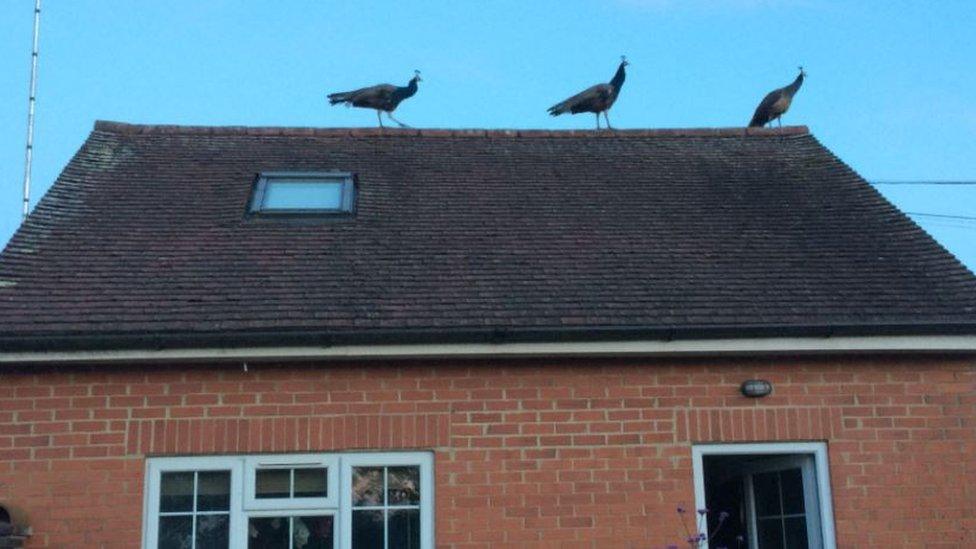
Sussex Police said the aim was to relocate the birds to a more suitable environment
He said they had to act after "a small number of complaints over time" from "long term residents whose patience had worn thin".
He explained: "It's like any antisocial behaviour. Once it starts affecting your life, you are, almost on a daily basis, waiting for it to happen.
"It was affecting their mental health."
He said the intention was to "humanely capture the birds and then relocate them to a more suitable environment".
But he said "there will not be police officers chasing peacocks around the village. We have a volunteer to do that."
- Published3 June 2019
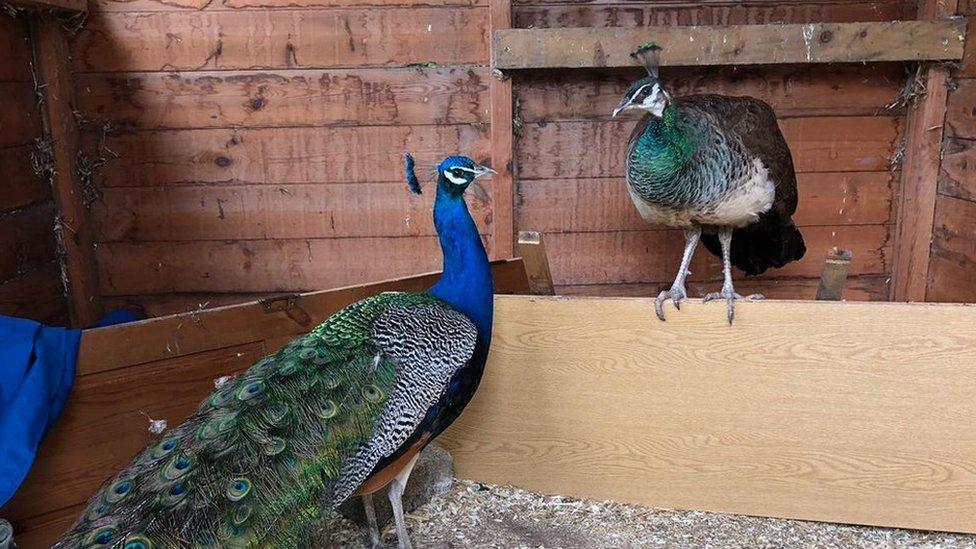
- Published30 June 2016
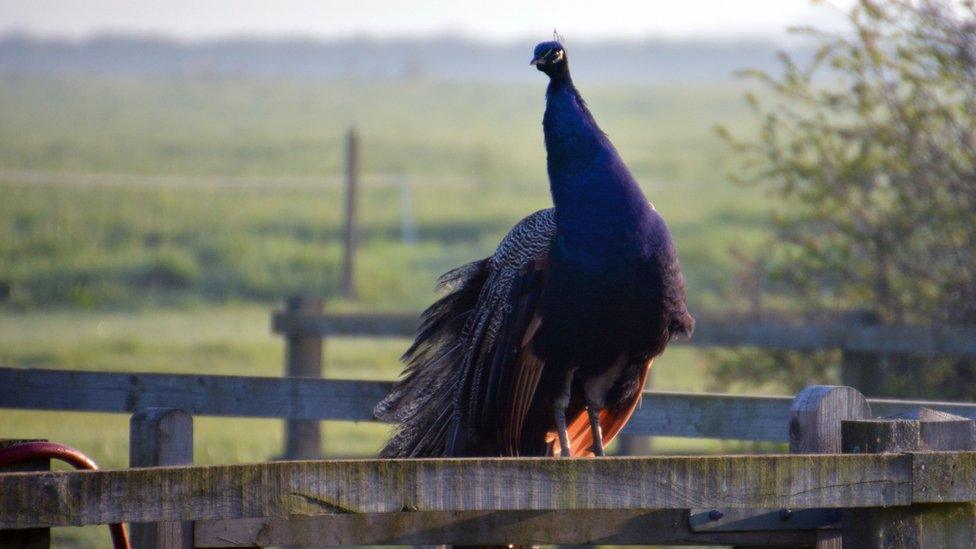
- Published6 March 2012
